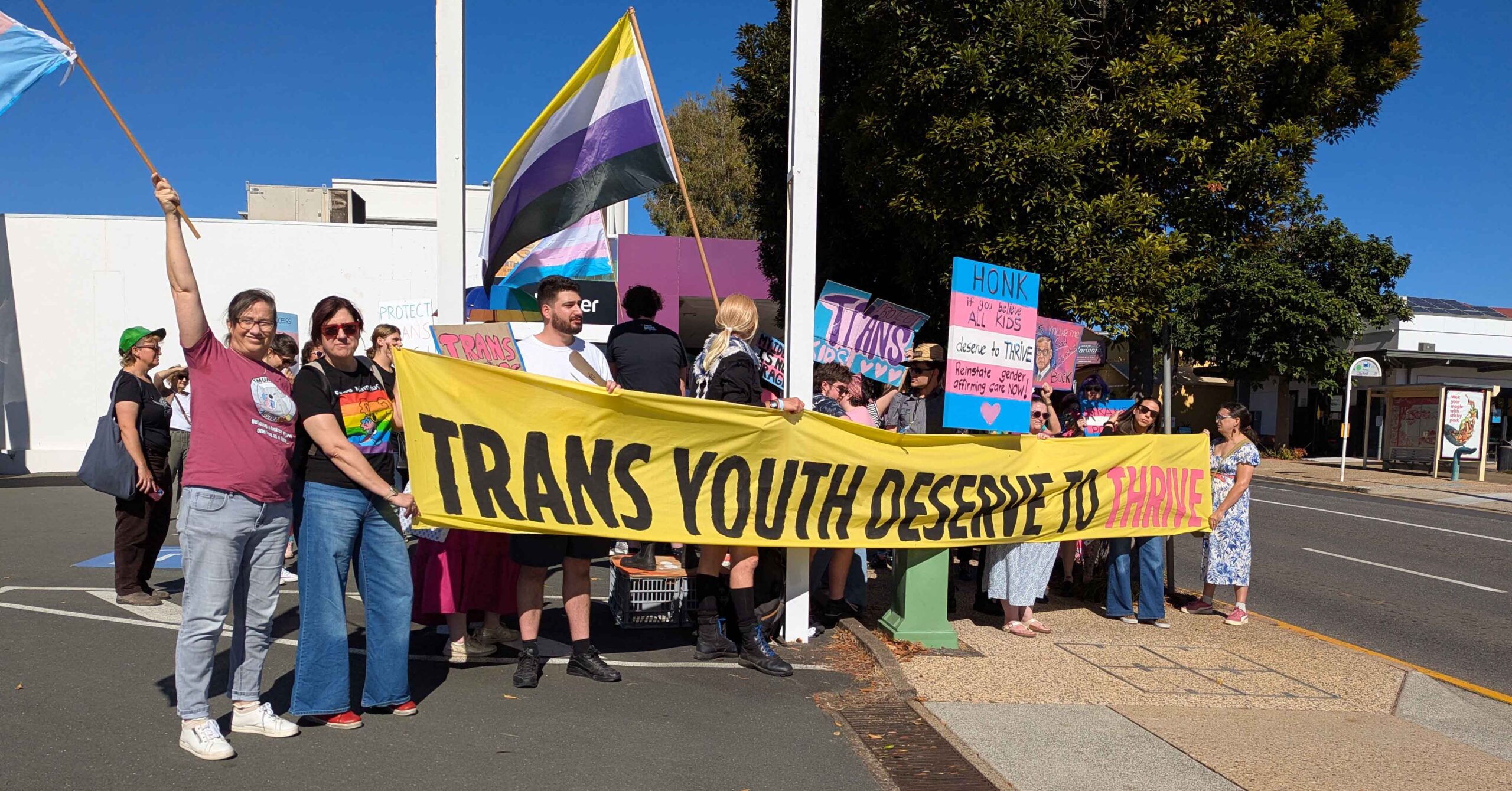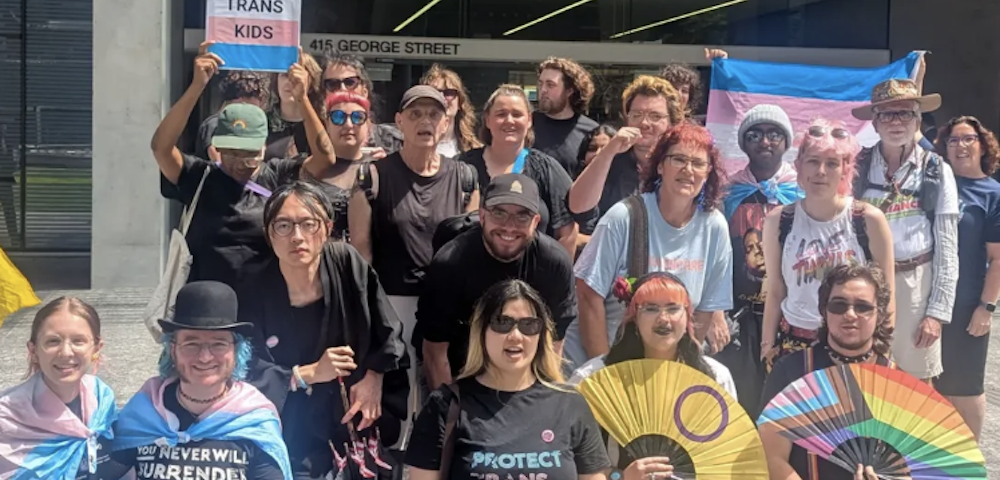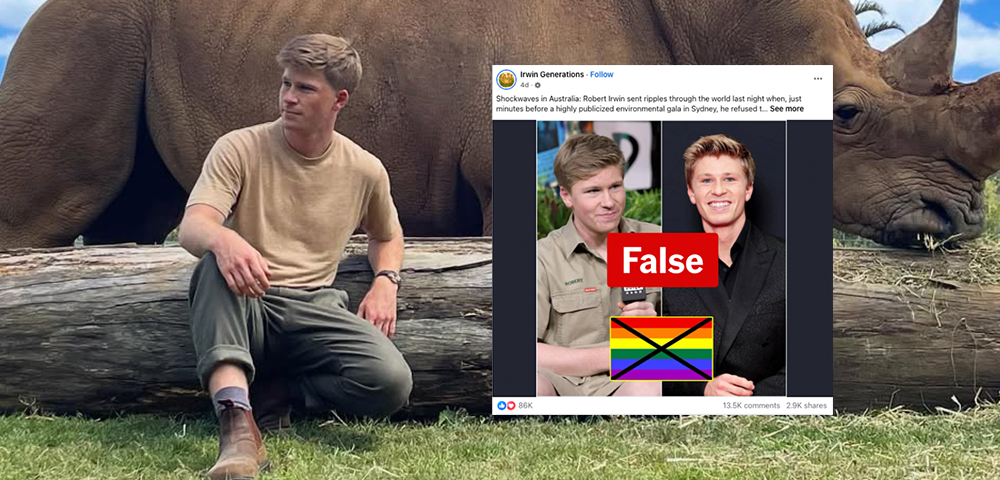
What Next For Queer Politics Under The Anthony Albanese Government?
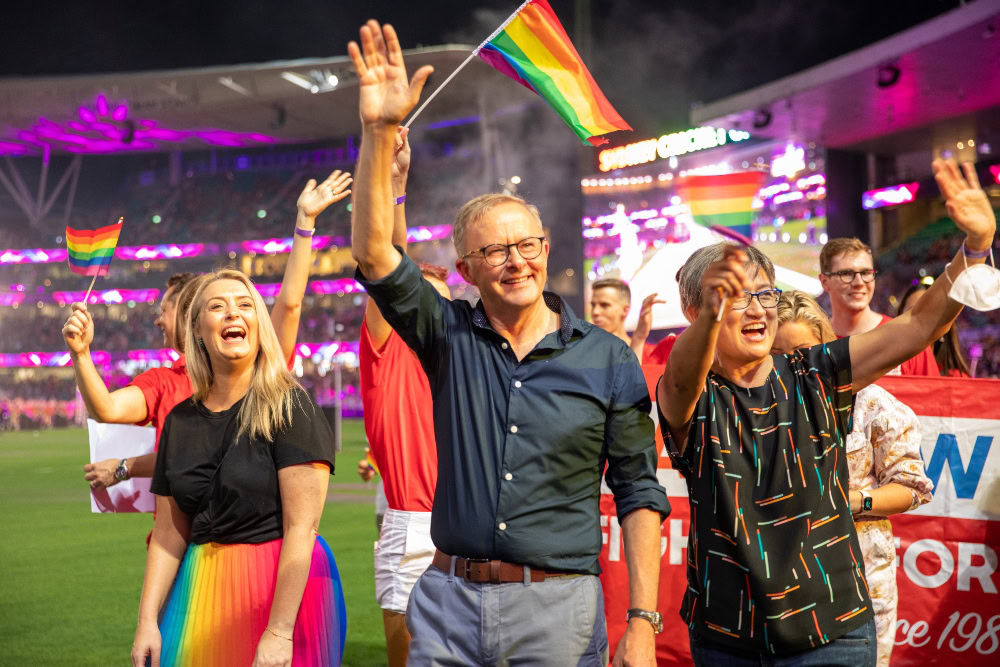
By Josh Pallas
Pride Month has become a celebration for the queer community. But it should always be deeply enmeshed with the ongoing struggle for queer liberation.
The first Sydney Mardi Gras protest march was held on 24 June 1978 as a solidarity action with queer activists in America who were remembering Stonewall. Over the ensuing months many queer activists in Sydney were arrested and publicly outed for their activism. This Pride Month coincides with the declaration of the results of the federal election where queer politics loomed large for all the wrong reasons. So how are things looking for queer politics under the Anthony Albanese government?
Scott Morrison Failed To Protect LGBTQI People
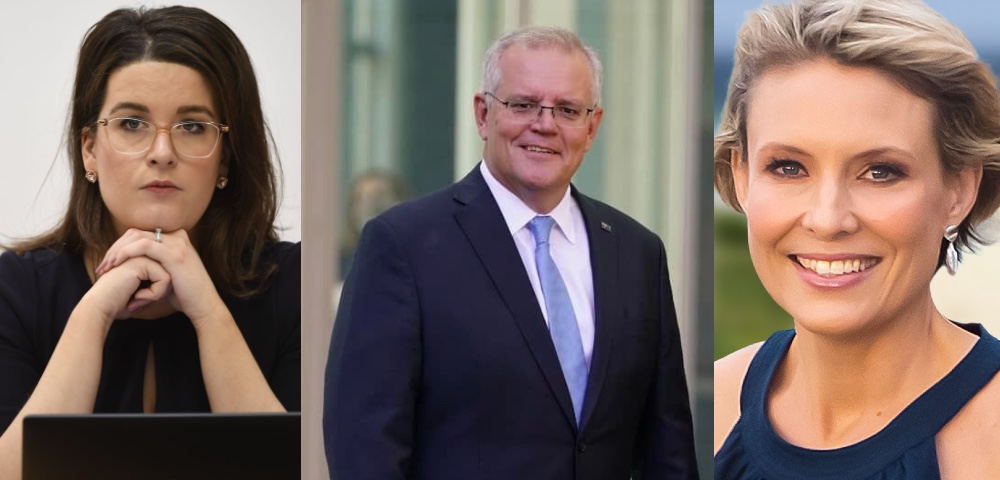
Like many other queer people I breathed a sigh of relief when it became clear that the Scott Morrison government was deposed. As if Prime Minister Morrison’s harmful rhetoric towards queer people was not damaging enough, his government’s policy positions sought to remove protections from discrimination, and to in fact expressly permit it.
Central to this policy agenda were the three unsuccessful attempts to pass the Religious Discrimination Bills and the vicious attacks on trans participation in sport by Katherine Deves and Senator Claire Chandler.
So what of the new government? Only recently in Opposition the Labor Party supported the Religious Discrimination Bills in the House of Representatives, even after Labor MP Stephen Jones gave a spirited speech in support of trans rights.
Labor’s Religious Discrimination Bill
Labor To Introduce New Religious Discrimination Bill In Parliament: Attorney General Mark Dreyfus
Before the election Prime Minister Albanese committed to reintroducing a form of protection for religious persons from discrimination, while at the same time protecting queer students from expulsion from schools. Labor’s policy platform speaks to strengthening anti-discrimination laws, not weakening them.
But until we see the details of any proposed bill we won’t know whether queer rights are curtailed or removed in favour of religious rights. It is, however, heartening to see a change in rhetoric and commitment from the new government to inject more funds into queer community organisations, particularly those supporting people living with mental illness.
While these commitments from the Albanese government are welcome, they don’t go far enough. Two other examples of important areas for immediate reform which would make a significant difference to the daily lives of queer people would be for the government to ban conversion practices across the country and ending unnecessary surgical procedures against children with innate variations of their sex characteristics (as is being investigated in the ACT). These issues are specific to the queer community and require specific attention from the government.
Australia Needs A Human Rights Charter
But the best way to protect the queer community, and all other marginalised groups within society, would be for the government to implement a human rights act or charter.
Australia remains increasingly isolated as one of the only liberal democracies without nationwide legal human rights protections. A human rights act would cover all civil and political rights (like the right to free speech, freedom of religion, protection from discrimination) in the one place, which will necessarily set out a mechanism for dealing with conflicts of rights.
This would end the way that rights are currently protected (or not) through a patchwork quilt of federal and state laws which don’t interact well with one another. A human rights act could also include important protections around healthcare, education and housing; none of which are matters particular to the queer community, but affect everyone. Most importantly, we know that human rights acts work with the most recent study from Human Rights Law Centre published last week about similar laws in Queensland, Victoria and the ACT.
Politics And Pride
To implement a human rights act requires courage and would demonstrate a truly reformist government. To date the major parties have shown no appetite for such a reform.
In the lead up to World Pride, Alex Greenwich has shown that much needed leadership at a state level (where we also don’t have a human rights act!). Will the Albanese government show leadership too or merely be content with tinkering around the edges?
Regardless of how the next couple of months unfold, let us remain committed to keeping politics at the centre of pride celebrations as we continue in our struggle for real queer liberation.
Josh Pallas is President of the New South Wales Council for Civil Liberties. @joshpallas on Twitter.





